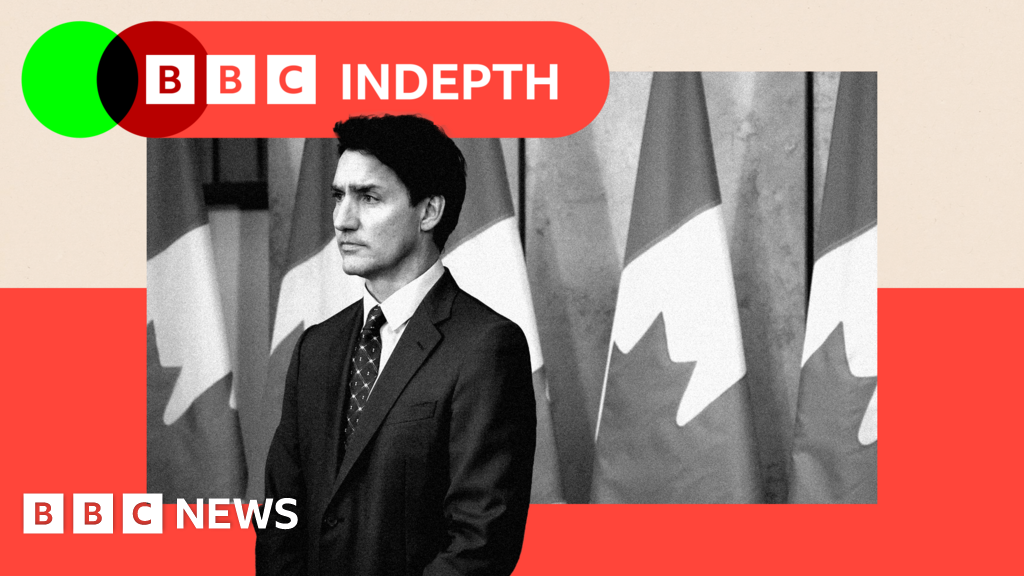BBCImmigration has long been a divisive issue in the Western world, but Canada had mostly steered clear of it – until now. The emergence of protests and advocacy groups in certain areas has led some to speculate that this, along with housing shortages and escalating rents, played a role in Justin Trudeau’s resignation. However, could the arrival of Donald Trump exacerbate the situation even further?
The rental market in Brampton, Ontario highlights the challenges many Canadians face. A single bedroom advertised for C$550 (£300) a month may seem like a steal, but upon closer inspection, it is revealed to be a cramped bathroom converted into a living space. Similar listings in Brampton and Scarborough show beds squeezed into unconventional areas, reflecting the broader issue of a housing crunch across the country.
According to property consultancy Urbanation, rents in Canada have surged by nearly 20% in the past three years, exacerbating the housing crisis. A government report released in December indicated that 2.4 million Canadian families are living in inadequate or unaffordable housing.
This housing shortage has coincided with rising inflation, prompting Canadians to question the country’s ability to accommodate newcomers. While immigration has traditionally been embraced in Canada, a shift in public sentiment has been noted. A survey by Environics revealed that by 2024, 58% of Canadians believed there were too many immigrants entering the country, a stark increase from previous years.
The discontent over immigration levels was cited as a factor in Justin Trudeau’s resignation in January. While immigration was not the sole reason for his departure, it added to the mounting challenges he faced, including public dissatisfaction with his handling of inflation and housing issues.
Under Trudeau’s leadership, Canada saw a significant uptick in immigration levels, with the population surpassing 40 million, driven primarily by immigrants and refugees. The influx of newcomers, coupled with the government’s efforts to boost the economy post-pandemic, has strained resources and contributed to the public’s concerns.
As Canada navigates these complex issues, the looming prospect of Donald Trump’s return to office in the United States adds another layer of uncertainty. Trump’s hardline stance on immigration and potential policies could further inflame the debate in Canada, regardless of who succeeds Trudeau as prime minister.
Overall, the confluence of housing shortages, rising rents, and public unease over immigration has brought these issues to the forefront of Canadian politics. The challenges ahead will require a delicate balance between welcoming newcomers and addressing the needs of existing residents, as the country grapples with a changing landscape.

